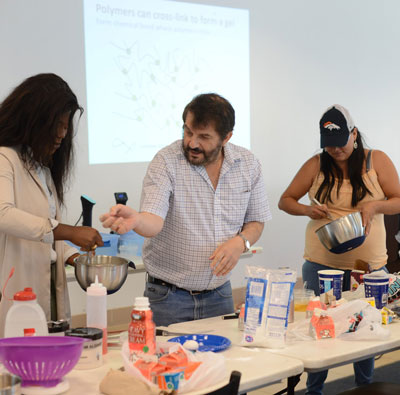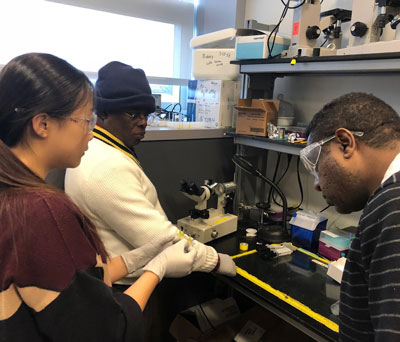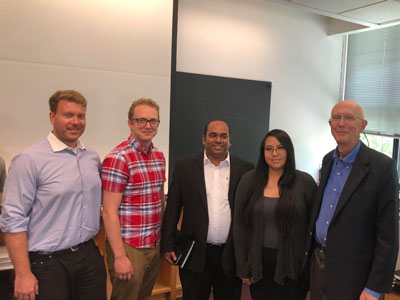Ventures NSF
Navajo Technical University (NTU) is one of the premier institutions of higher education in the Navajo Nation, providing a unique balance among science, engineering, technology, tradition, and identity rooted in the Diné Philosophy of Education: Nitsahakees, Nahata, Iina, and Siihasin.
This project, the Vision for Excellence at NTU in Research and Education in STEM (VENTURES), is a partnership between NTU and the National Science Foundation funded Materials Research Science and Engineering Center (MRSEC) at Harvard University.
The goals of this partnership are to:
- increase the number of Native Americans earning undergraduate degrees in STEM fields,
- increase the research infrastructure at NTU so that students and faculty can perform research within their own community,
- increase the number of Native Americans entering and completing graduate programs in materials science and related fields, and
- include Native American perspectives and methods of inquiry in materials science research.
The two materials research areas in this award are relevant to health and environmental issues that are of immediate importance to the Navajo Nation.
Research area 1 will focus on developing materials and techniques for the electrochemical detection of low concentrations of pollutants such as heavy metals and disease biomarkers such as glucose. This research area is motivated by the long history of uranium mining on the Navajo Nation, as well as more recent extraction activities, such as fracking. Low-cost electrochemical detection can also be used to monitor health issues like obesity and type 2 diabetes on the Navajo Nation.

Research area 2, which will study mechanical properties of cell membranes, will help to address a growing health concern for the Navajo people – a rising incidence of high cholesterol and associated coronary disease. Collaborative research teams in research area 1 will fabricate and test electrodes for detection of mining contaminants, and develop microfluidics-based laboratory models for flow and detection of contaminants through soil. Research area 2 will investigate the ability of phytosterols to act as cholesterol surrogates and how they modify the sterol profile of mammalian cell membranes, as well as examine the resulting membrane biophysical properties (using capillary microfluidic techniques).

By linking each research area to an issue of concern to the Navajo people, this team will be able to achieve the objectives of increasing enrollment in STEM fields at NTU, and will inspire students to continue to graduate research in materials and related fields. In addition, the highly accessible research techniques can be readily adapted into courses at NTU and outreach activities to the Navajo Nation, incorporating cultural knowledge and practices.

We gratefully acknowledge funding of VENTURES (Vision for Excellence at Navajo Technical University in Research and Education in STEM) by the National Science Foundation under NSF Award Number DMR-1828012. Any opinions, findings, conclusions or recommendations expressed in this material are those of the author(s) and do not necessarily reflect those of the National Science Foundation.
